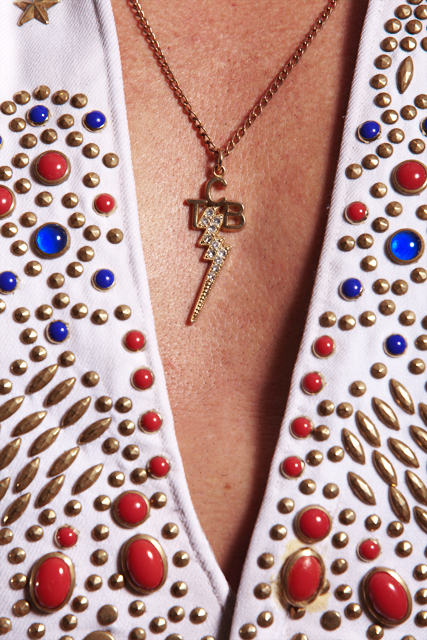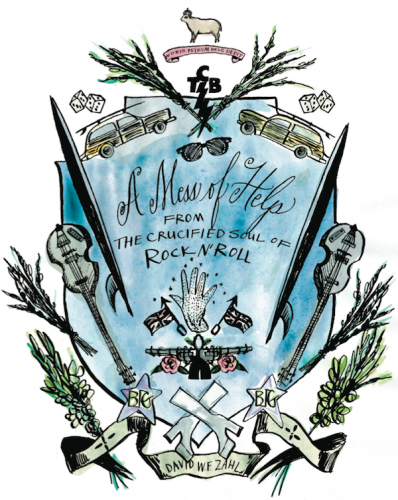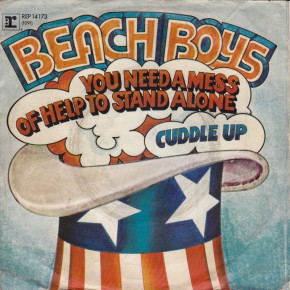
An exciting day for yours truly! My brand-new book A Mess of Help is finally available for order on Amazon
(and Createspace, where Mbird keeps more of the revenue). To celebrate, we put together a little Q&A about the project below. There’s also an interview about the book over at Key Life, along with a sample chapter (MJ!). Help us spread the word!
What is A Mess of Help and how did it come about?
A Mess of Help
is a book of essays that split the difference between music, memoir, and theology. I’d been encouraged to collect some of my writing, and when I looked back at seven-plus years of it on the site, the subject of music had inspired much of what I was most proud of. So almost all of the eighteen chapters (click here for the table of contents) started out as posts for Mockingbird in some form or another. I took those as the skeleton, and then spent that last year rewriting and expanding everything, doing my best to weave it all together like an album. The end result is more than twice as long as those original posts, roughly 80,000 words, and a whole lot more polished, thank God.
When I reread it as a whole, a number of non-musical plumb-lines stuck out. This is a book about creativity and grace, identification and sympathy, law and pressure, hope, religion, self-sabotage, success, sin, as well as my own life and faith. Also, since most of the characters I deal with are pretty eccentric, a certain amount of humor was inescapable. I suspected it would be a fun project, and it was.
What does the title mean?
The title refers to one of my favorite Beach Boys songs, “You Need a Mess of Help to Stand Alone”, which hopefully speaks for itself. The subtitle “From the Crucified Soul of Rock N’ Roll” refers to how many of the artists profiled in the book point to some sense of strength being found in weakness, of inspiration being bound up with suffering rather than apart from it. The more precise word would probably be “cruciform” but that’s too academic to go in the title.
Will I enjoy A Mess of Help even if I don’t like music that much (or the music you write about)?
That’s certainly my hope! The task of an essay is to make its subject interesting to those who might not be otherwise drawn to it, and that’s what I’ve tried to do. Again, I think if you appreciate the Mockingbird “voice”–the breadth, the perspective, the playfulness–you’ll enjoy this book greatly. Of course, it won’t hurt if you like some of the music already, but it’s not a prerequisite by any means. Here’s how I explain the focus in the introduction:
“For better or worse, pop music became my way of making sense of both myself and the world around me… So perhaps it should come as no surprise that when Christianity took root in my life, I not only found its core message of grace so exciting and enlivening as to be compelled to write about it, but music would become one of the primary lenses through which I came to do so. Not just music but culture itself—high, low and in between (T. Van Zandt).”
So it’s a book about Christianity and culture? Or a Christian approach to popular culture?
 Not really. I hate to say it but that phrase “Christian approach” often implies an agenda, unspoken or unconscious, that culture is valuable only insofar as we can harness it in some way, or how it stacks up against the standards of our faith. But to quote someone I admire, I’m convinced that “any goodness, beauty, truthfulness, or enlivening candor we have the wit to discern is something for which we have God to thank.” That is, that it’s already been harnessed. So this isn’t a Christian “take” on secular music, at least as I see it. The artists I wrote about are the ones that have spoken and continue to speak to me rather than vice versa; I talk more about what I’ve learned from them than how their work filters through a pre-existing framework. That said, I gave myself plenty of room to explore, so who knows–“preacher brain” is not the easiest thing to shut off. Again from the introduction:
Not really. I hate to say it but that phrase “Christian approach” often implies an agenda, unspoken or unconscious, that culture is valuable only insofar as we can harness it in some way, or how it stacks up against the standards of our faith. But to quote someone I admire, I’m convinced that “any goodness, beauty, truthfulness, or enlivening candor we have the wit to discern is something for which we have God to thank.” That is, that it’s already been harnessed. So this isn’t a Christian “take” on secular music, at least as I see it. The artists I wrote about are the ones that have spoken and continue to speak to me rather than vice versa; I talk more about what I’ve learned from them than how their work filters through a pre-existing framework. That said, I gave myself plenty of room to explore, so who knows–“preacher brain” is not the easiest thing to shut off. Again from the introduction:
“It wasn’t that I set out to write about the intersection of Christianity and culture; it was simply that music was the most honest language available to me—the lingua franca of my inner life, my immediate vocabulary for understanding what was happening to me. In fact, so immersed in it was I, that to avoid pop culture would have been to embrace precisely the kind of phoniness that permeates so much religious “engagement” with it these days.”
Any parts you’re particularly proud of?
I’m really happy with the whole thing, actually–mainly cause I had such a great editor in Will McDavid. But if you woke me up in the middle of the night and asked which sections I like best, the 15,000-word annotated playlist that closes the book (“Sing Mockingbird Sing”) is probably a favorite. It gave me an opportunity to be a bit outrageous, going on long tangents about ecclesiology and aging and failure and addiction, to name a few. The Michael Jackson essay was the most ambitious, and I’m really pleased with how it turned out. The Beach Boys may be the funniest, with ABBA and Elvis tied for second.
Can you decipher the cover for us?
 Sure. Stephanie Fishwick, who’s designed a number of our covers, really outdid herself with this one. All the elements of the crest allude to bands that are covered in the book. The surfboards and “woody” wagons refer to The Beach Boys. The “TCB” lightning bolt was the slogan and logo (“Takin’ care of business”) of Elvis Presley’s entourage, also known as the Memphis Mafia. Michael Jackson’s sequined glove occupies a central place. The surfboards are flanked by upside-down Hofner basses of the kind that Paul McCartney is known for. The dice are the “tumblin” variety, immortalized in song by The Rolling Stones. There’s some English mod regalia courtesy of The Who. The platform boots were added with Mott the Hoople, David Bowie and ABBA in mind. The guns and roses and big stars should be self-explanatory. And those flowers are gladioli, the kind that Morrissey would carry in his back pocket during the early years of The Smiths. Oh, the sunglasses are Phil Spector’s trademark. Finally, the (crowned) lamb of God presides over the whole affair with a banner that reads “Vobis Petrum Deus Dedit”, or “God gave you the Rock”, making a St Peter-Argent-KISS triple entendre.
Sure. Stephanie Fishwick, who’s designed a number of our covers, really outdid herself with this one. All the elements of the crest allude to bands that are covered in the book. The surfboards and “woody” wagons refer to The Beach Boys. The “TCB” lightning bolt was the slogan and logo (“Takin’ care of business”) of Elvis Presley’s entourage, also known as the Memphis Mafia. Michael Jackson’s sequined glove occupies a central place. The surfboards are flanked by upside-down Hofner basses of the kind that Paul McCartney is known for. The dice are the “tumblin” variety, immortalized in song by The Rolling Stones. There’s some English mod regalia courtesy of The Who. The platform boots were added with Mott the Hoople, David Bowie and ABBA in mind. The guns and roses and big stars should be self-explanatory. And those flowers are gladioli, the kind that Morrissey would carry in his back pocket during the early years of The Smiths. Oh, the sunglasses are Phil Spector’s trademark. Finally, the (crowned) lamb of God presides over the whole affair with a banner that reads “Vobis Petrum Deus Dedit”, or “God gave you the Rock”, making a St Peter-Argent-KISS triple entendre.
Why this book now?
Well, as cliched as it may sound, it’s the book I most wanted to write because it’s the book I most wanted to read. I genuinely don’t think that something like A Mess of Help exists, something that combines music and theology and coming of age in a way that’s both honest and entertaining. My fear is that it’s overly niche—too much of a stretch for religious audiences and too theological for secular ones. But that’s out of my control. Plus, Mockingbird has put out quite a few books at this point, but almost none about pop culture–which is a tad ironic, since “pop culture” is a term that’s often used when people describe our work, even though I don’t see Mbird like that at all (which I spell out in the book). Still, it was time for that part of our scope to be represented in the publications, and the MoH direction was where the inspiration felt most genuine and free. The next one will likely be about social media, we shall see.
Order your copy today on Amazon or Createspace! And by all means write a review if you feel so led.
or Createspace! And by all means write a review if you feel so led.

COMMENTS
3 responses to “A Mess of Answers about A Mess of Help”
Leave a Reply













“This is a book about creativity and grace, identification and sympathy, law and pressure, hope, religion, self-sabotage, success, sin, as well as my own life and faith.” Glad you narrowed that down! I can’t wait to get my greasy-grace hands on this!!!